
Interview with Melissa DeVelvis on Gendering Secession
In today’s Muster, JCWE associate editor Robert Bland interviews Melissa DeVelvis, author of Gendering Secession: White Women in the Politics of South Carolina, 1859 to 1861 (New York: Cambridge University Press, 2025). Gender Secession explores the lives and politics of South Carolina's elite white women during the end of the ...
Read More
Read More
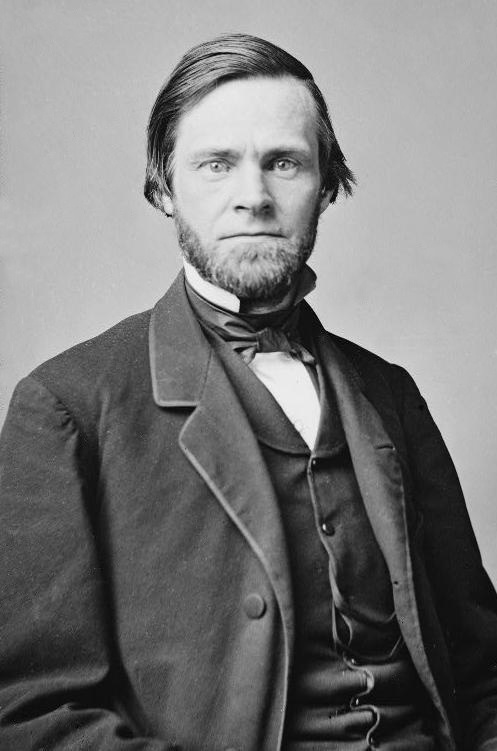
John Sherman’s Struggle to Preserve Democracy: How 1860 Connects to 2020
This is not the first time in American history when democratic governance appeared to be under assault. In the years before the Civil War, just as today, minority rule was the norm. White Southerners dominated the Democratic Party, and the Democratic Party dominated the federal government. In this way, what ...
Read More
Read More
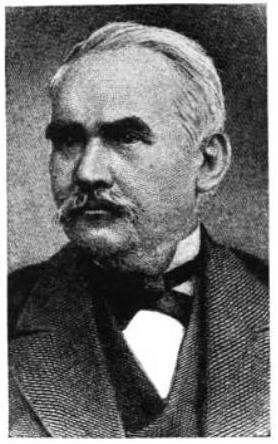
How to Build a Winning Coalition: What Today’s Democrats Can Learn from Pennsylvania’s Republicans in 1860
American politics during the late antebellum era was divisive and deeply polarized, just like the present. A few key battleground states, most prominently Pennsylvania, decided the outcome of national elections. To win the Keystone State in 1860, Republican Party managers employed keen coalition-building skills. They adapted readily to changing circumstances ...
Read More
Read More

Before Opinion Polling: Tracking Public Sentiment in Civil War-Era Politics
For better or for worse, public opinion polls are deeply embedded in American politics. Proponents argue that polls keep elected officials connected to their constituents, make the government more responsive to popular demands, and dispel “myths and stereotypes that might otherwise mislead public discourse.”[1] Critics argue that strict obedience to ...
Read More
Read More
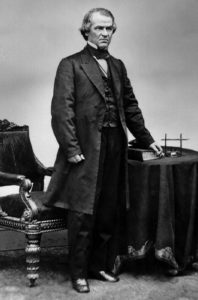
‘Disgrace, Ridicule, Hatred, Contempt and Reproach’: The Impeachments of Andrew Johnson and Donald Trump
“There has been no President in the history of our Country who has been treated so badly as I have,” complained President Donald Trump as the House of Representatives began its impeachment inquiry in September 2019.[1] Only three other Presidents have faced impeachment inquiries, and they certainly felt the weight ...
Read More
Read More
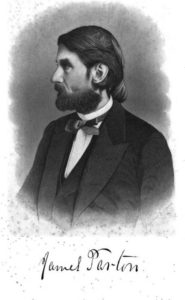
A Historian for Troubled Times: James Parton, Andrew Jackson, and the Secession Winter
The cry echoed throughout the crisis which followed Abraham Lincoln’s election: “Oh, for an hour of Jackson!” It crossed party and even sectional lines, linking dyed-in-the-wool Democrats to rock-ribbed Republicans, and indignant northerners to anxious southern dissenters. As they scorned lame-duck James Buchanan and awaited his untested successor, many Unionists ...
Read More
Read More
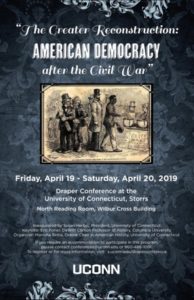
2019 Draper Conference Review: “The Greater Reconstruction: American Democracy after the Civil War,” Part II
Day two of the 2019 Draper Conference brought four more panels, including a plenary session that concluded the proceedings. For my review of day one of the conference, see my previous post on Muster. A panel on the topic of “Racial Terror and Violence” started off the morning block and ...
Read More
Read More
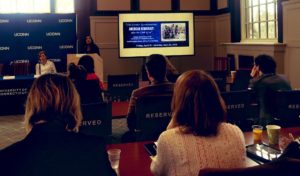
2019 Draper Conference Review: “The Greater Reconstruction: American Democracy after the Civil War,” Part I
On April 19 and 20, the University of Connecticut at Storrs hosted the 2019 Draper Conference on the topic of “The Greater Reconstruction: American Democracy after the Civil War.” The two-day event featured eight panels, consisting of thirty-one paper presentations and a keynote address.[1] All told, the conference revealed an ...
Read More
Read More
Editor’s Note: December 2018 Issue
We are pleased to present the editor's note for our December 2018 issue, chock full of fascinating articles. To subscribe, please visit our subscriptions page. This issue features essays on the political and social contexts of the sectional crisis, looking carefully at what Americans read and how they voted—and for ...
Read More
Read More
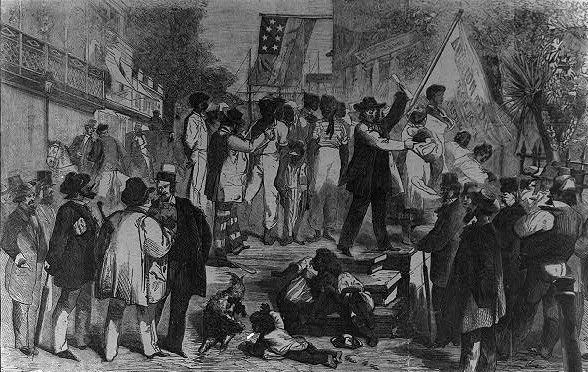
“The Most Potent Money Power”: Slave Traders, Dark Money, and Elections
With the 2018 midterm elections approaching, the role of money in politics once again looms large in American political discourse. For many, shadowy super PACs, mega-donors, and dark money stand in stark contrast to the sanctity of the individual voter. Political actors recognize and deploy this, with politicians going to ...
Read More
Read More
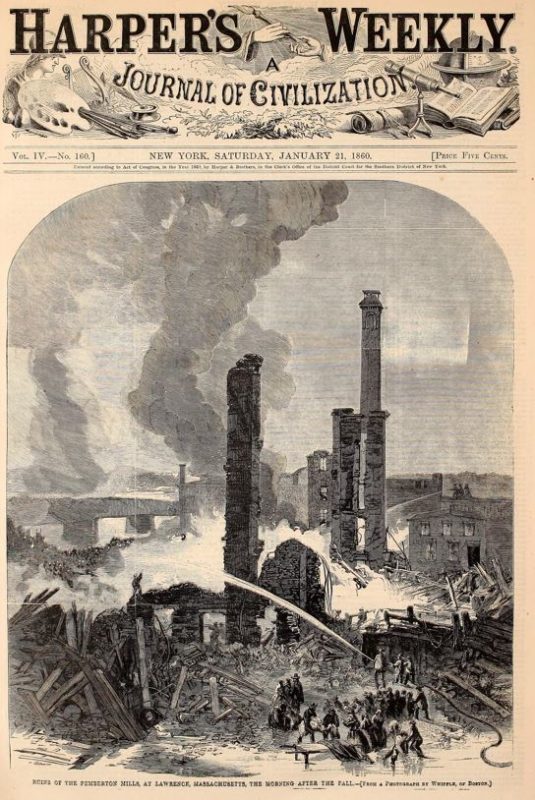
The Other Lawrence Massacre: Sectional Politics and the 1860 Pemberton Mill Disaster
Political polarization often magnifies the public significance of a tragedy. As Americans prepared for a bitterly contested presidential election in early 1860, a gruesome industrial accident in Lawrence, Massachusetts, reignited conflict between champions and critics of wage labor. Unlike the violent episodes of 1856 and 1863 in Lawrence, Kansas, the ...
Read More
Read More
Reconstruction Scholars’ Public Engagement: Why It Matters
The recent Alabama senatorial race raised the specter of historians’ role in public debates. After suggesting antebellum slavery as a period of American’s greatness, one candidate dismissed the Reconstruction-era amendments and other amendments designed to create “a more perfect union” (except for the Bill of Rights).[1] Post-election demographic analyses revealed ...
Read More
Read More
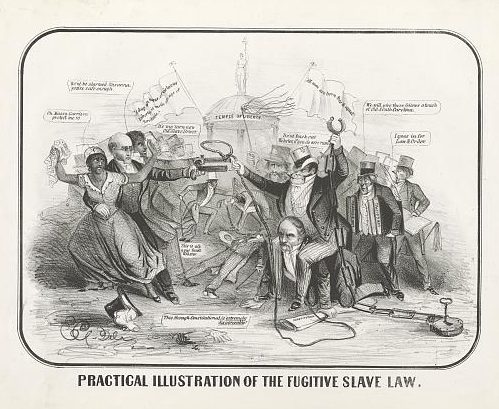
States’ Rights and Antislavery Activism
Michael E. Woods, associate professor of history at Marshall University, has joined our team of Muster correspondents. He is the author of two books and several articles about politics in the antebellum period. Here he offers his first Field Dispatch. Let us know what you think in the comments! The ...
Read More
Read More
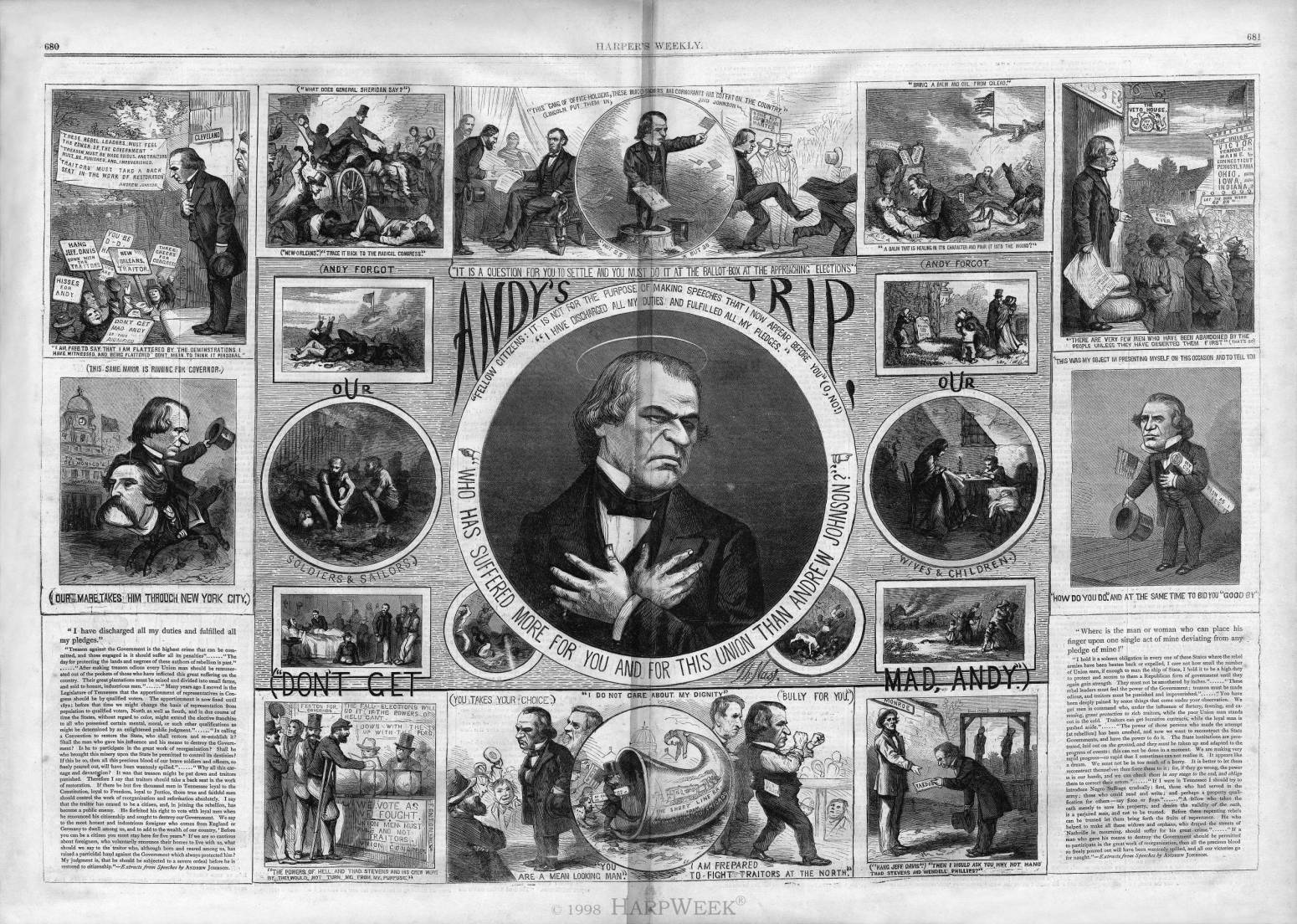
By the Standard of Andrew Johnson’s Impeachment, Trump’s Would Be a No-Brainer
A President came to office under a cloud, to help govern a badly divided nation. But he squabbled with his own party, which controlled both houses in Congress, and abused the pardon power in ways that emboldened white supremacists and vigilante terrorists operating outside the law. To avoid accountability for ...
Read More
Read More
New Political Histories of the Sectional Crisis: A Report from the AHA
In August 2016, Kenneth Osgood and Fredrik Logevall (fresh from winning the Pulitzer Prize for his recent book on the Vietnam War, Embers of War) co-authored an op-ed for the New York Times titled “Why Did We Stop Teaching Political History?”[1] Like so many nostalgic jeremiads, it assumes that we ...
Read More
Read More
